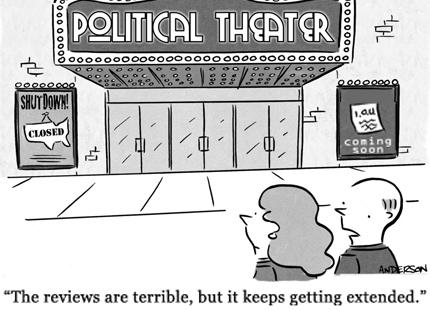“The long and short of it is that the only thing we cannot do is spend DOT funds on producing wraps,” asserted a PSTA marketing staffer in the PSTA Legislative Committee meeting on May 8th. The DOT is the Florida Department of Transportation (FDOT), and the committee voted unanimously to recommend approval of PSTA’s bus wrap plan to the full PSTA board.
The committee’s approval meant the bus wrap plan was going before the board for approval two days from now, on May 29th.
However, without comment or explanation from PSTA, that bus wrap plan was pulled on Friday (May 24th) from the meeting agenda for the PSTA board meeting.

CLICK IMAGE for a larger view – (from a PSTA presentation).
With no board approval, there will be no “Pride Month” bus wrap on PSTA buses, as in previous years.
“When I learned that this is how PSTA buses, a 93% tax payer-funded service, planned to wrap buses for TWO months in celebration of Pride month, I immediately began discussions that ended with PSTA withdrawing the plan.,” said Florida State Representative Linda Chaney (R-69) in a Facebook post the day after the bus wrap plan was canned.
“There will be No Pride wraps on tax payer-funded PSTA buses,” Chaney continued, but would not provide details about how she made that happen.
However, sources tell us that several members of the Florida Legislature let it be known that PSTA’s apparent attempt to skirt a new state law would not be well received in Tallahassee.
Chaney is a co-sponsor of a new law that goes into effect July 1. The portion of that law which regulates bus wraps states that as a condition of receiving funds from the FDOT, “a public transit provider may not expend department funds for marketing or advertising activities, including any wrap, tinting, paint, or other medium displayed, attached, or affixed” to transit buses.
Chaney has been a vocal critic of PSTA during the past legislative session. Her district includes St. Pete Beach, which suffered sharply increased crime and grime after PSTA introduced its Sunrunner bus line into the city two years ago.

Chaney also introduced this local bill calling for reform of PSTA. Any changes to PSTA’s governance structure must be made through a local bill, and a local bill can be quashed if just one Senator from the local legislative delegation decides to do so.
Chaney’s bill suffered that exact fate, dying after State Senator Darryl Rouson (D-16) refused to let the bill go forward. Rouson’s district covers south St. Petersburg in Pinellas County, and geographically much larger parts of Hillsborough County.
PSTA’s ridership continues to plunge, despite it’s much ballyhooed Sunrunner bus line, which critics call the DrugRunner or BumRunner. PSTA staff forecast that the Sunrunner would greatly boost PSTA’s overall ridership, but instead overall ridership has dropped.
We have documented not only PSTA’s continuing and unceasing plunge in ridership, but also the problems that plague its paratransit program, the failure of six PSTA employee to follow the agency’s own procurement rules in selecting a software vendor for its paratransit program, and its ineffective cheer-leading board.
Also: PSTA’s failure to keep promises it made to voters, and a multitude of other failures in over 40 articles over the last eight years. All this evidence suggests that PSTA is in fact in need of reform, even deep reform. Maybe even ending what appears to be a failed forty year long experiment.
Amanda Baird, PSTA’s Director of Communications and Marketing, was the PSTA staffer who gave the bus wrap presentation to the PSTA Legislative Committee. Baird, who is not an attorney, made assertions about what the law allows and doesn’t allow without citing a basis for her claims.
The Tampa Bay Guardian made a public records request on Friday to PSTA for any legal opinions provided by their own attorneys, or any attorneys, to support Baird’s claims. This was the same day the plan was pulled, but there is no evidence that our public records request caused PSTA to act.

Baird made her conclusory averments about what the law allows with the text of the law up the presentation screen on the wall of the meeting room. Notably, none of the four Legislative Committee committee members present asked Baird if PSTA’s General Counsel had opined on the meaning of the law. Even with the law up on the screen, they had no questions about the law, choosing instead to accept a legal opinion from a marketeer.
The committee members present who failed to provide oversight for the taxpayers on the bus wrap action item are Oldsmar Mayor Dan Saracki, St. Petersburg City Council member Gina Driscoll, Clearwater City Council member David Albritton and Dunedin City Commissioner Jeff Gow.
The word “marketeer” sounds a bit like the word “musketeer.” Apparently, “marketeer” also sounds like the word “attorney” to some elected officials on the PSTA board.
Neither Saracki, Driscoll, Gow or Albritton are themselves attorneys, but they have all been elected officials for more than five years each. They all know, or should know, that legal opinions must come from an agency’s general counsel — not its marketing staff.
“I am a supporter of Greenlight Pinellas because we desperately need to upgrade our public transportation,” Albritton wrote in an email to this reporter in February, 2014. Greenlight Pinellas was a sales tax hike to fund light rail in Pinellas County.
Albritton is a registered Republican, yet supported this regressive tax hike. Voters resoundingly rejected it with 62% NO in November of that year.
“You will not convince me to denounce Greenlight Pinellas,” Albritton wrote in that email in 2014. Albritton did not support Chaney’s bill to reform PSTA.

Albritton is regularly quoted in pay-for-play media such a 83 Degrees, St. Pete Catalyst and I Love the Burg making statements supportive of PSTA.
PSTA’s website states that “the mission of the PSTA Legislative Committee is to advise the full PSTA Board of Directors of the official positions of the local, state, and federal entities concerning legislative matters pertaining to the operations, development, and funding of PSTA” (bold-facing added).
Despite this mission statement, when the legislative matter of bus wraps came before the committee, the committee members acted more like clapping seals rather than “advising the full PSTA board” of the “official position” of the Florida State Legislature.
“PSTA is no longer about transit,” said Barb Haselden, a local activist who led the No Tax For Tracks effort in 2014 to defeat the Greenlight Pinellas tax hike.
“PSTA takes traffic lanes against the will of the people, thereby causing traffic congestion,” Haselden said. “PSTA has become the vehicle by which elected officials allow developers to make obscene profits while densifying and permanently ruining our county.”
“They don’t have to deal with the crime and grime their actions cause,” Haselden added. “PSTA is very far from its mission to provide transportation to the less than 1.5% of Pinellas residents who choose to use it on any given day. This bus wrap flap is just more proof of their arrogance. Shame on PSTA for their manipulation.”
Should PSTA be reformed? Can it be reformed? Or should it be shut down and its services contracted out?
As always….the Guardian reports and the readers decide. Please like our Facebook page to find out when we publish new stories.


